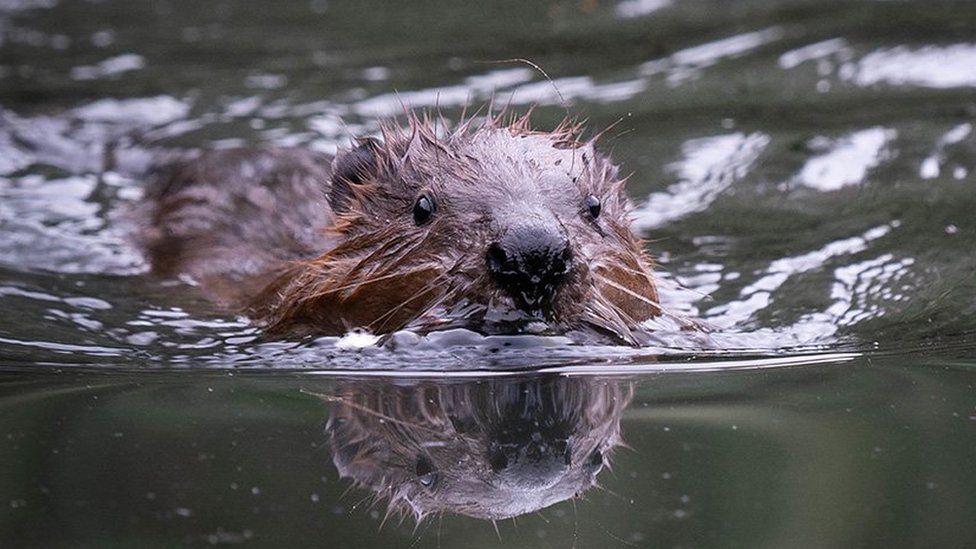
The Eurasian beaver family are the newest residents of the Paradise Fields wetlands
Beavers have been reintroduced to west London for the first time in about 400 years in a bid to improve biodiversity and help mitigate the impact of climate change.
The family of five Eurasian beavers were released at Paradise Fields, an area of wetlands in Ealing.
They were relocated from a wild beaver population in Scotland by a coalition of wildlife groups.
It is hoped they will improve the local habitat and reduce flood risks.
The project is being paid for as part of the mayor’s Rewild London Fund.
Elliot Newton, co-founder of Citizen Zoo, told BBC London: “Beavers became extinct in the UK 400 years ago so this is part of bringing them back into the landscape where they deserve to be.”
Image source, PA Media
The release was organised by a coalition of wildlife groups and was paid for as part of the mayor’s Rewild London Fund
Sean McCormack, a vet and chair of Ealing Wildlife Group, said the beavers could play an important part in London’s urban wildlife.
He said there had been plans to spend money on flood prevention measures in Greenford but the beavers were offered as a “cost-effective, nature based” solution.
“In high rainfall events, the brook flash floods and all of that water flushes through in a matter of minutes and floods urban Greenford,” Dr McCormack said.
“[The beavers] will turn this into a sponge where the land will hold more water behind their dams, in their ponds in these complex wetlands, and it will release slowly.”
The area where the beavers have been released will be closed to the public for one month to allow the animals to settle in.
Dr McCormack said the public would later be welcomed on “beaver safaris” so people could learn more about them.
At the scene: BBC London’s Transport and Environment correspondent, Tom Edwards
It has taken years of work for the volunteers to get to this point and there was lots of emotion this morning when the Scottish beavers were released in Greenford.
They didn’t mess about and were soon out of their cages and in the water.
These beautiful native creatures are much bigger than you think and seeing them slap their tails on the water brought joy and fascination to those watching. It was a privilege to be there.
More practically, the water levels will now be monitored to see if beavers can help prevent flash flooding – which has become more frequent with climate change.
Beavers are known as nature’s engineers and they will soon get to work remodelling their new west London home with dams and trenches.
London mayor Sadiq Khan said: “I’m proud that we are turning London into a wildlife haven, as well as making the city more resilient to the effects of climate change.”
The beaver family includes a mother, father and their three children
Last year two beavers, named Justin and Sigourney Beaver, were introduced to a farm in north London, but one of them died before the pair could breed.
Listen to the best of BBC Radio London on Sounds and follow BBC London on Facebook, X and Instagram. Send your story ideas to hello.bbclondon@bbc.co.uk
Related Topics
Related Internet Links
The BBC is not responsible for the content of external sites.








